Use of preclinical High Fidelity Medical Simulations (HFMS) to promote the integration of basic and clinical sciences in undergraduate medical education
This session will discuss how to implement and effectively integrate pharmacology and physiology with other essential foundational and clinical sciences using preclinical high fidelity medical simulations carefully scaffolded to keep cognitive domain levels appropriate to the novice medical student’s abilities. While the medical educational literature is replete with proposed curricular models designed to integrate critical foundational sciences like physiology and pharmacology with clinical sciences, gaps exist on the best pedagogy and procedures to maximize conceptual integration and learner encapsulation at the instructor and sessional level. We will review our research evaluating the effectiveness of various techniques used to teach pharmacology within preclinical simulations, and share models and implemental procedures that best support active learning and reflection on error to maximize the impact to learners. Further, we hope to promote a dialogue with other medical educators on how to utilize medical simulation pedagogy to support horizontal and vertical integration of the foundational basic and clinical sciences.
Self-directed learning in your curriculum—getting from theory to practice.
In today’s health care arena with rapidly expanding knowledge, yesterday’s best practice may be obsolete tomorrow. This creates an imperative for physicians to be life-long learners. As students progress through medical education their learning will need to be increasingly self-directed and develop the necessary skills to diagnose and address their own learning gaps. Despite the growing recognition that such skills can and should be taught, this is not yet a consistently integrated component of medical school curriculum. In this webinar, we will first define terminology and explain theoretical frameworks that guide our understanding of self-directed, life-long learning; including metacognition, self-regulation, informed self-assessment and the newer framework of master adaptive learning. We will then provide a brief literature review of strategies employed to help students develop the relevant skills, including the use of reflection, learning plans, portfolios and coaches. We will discuss challenges encountered when applying theoretical frameworks to practical strategies and areas of ambiguity in which more research is needed. We will end with some practical suggestions based on the literature and our own experiences.
Entrustment decision making in EPA-based curricula
Assessment of clinical competence is an ongoing topic of debate among medical educators. Competency-based medical education intends to train and assess residents and students who meet predefined standards. The quest for psychometrically valid assessments, i.e. sound measurement of trainee competencies, to provide sufficient certainty to the public that all those who complete undergraduate medical education are ready for residency, and all those who complete graduate medical education are ready for unsupervised practice, has not yet yielded a gold standard for evaluation. A new concept in workplace training and assessment is Entrustable Professional Activities (EPAs), units of professional practice that learners may execute without supervision once they have satisfactorily demonstrated to possess the relevant competence in postgraduate specialty training, or indirect supervision in undergraduate medical education. EPA-based curricula with entrustment decisions provide a conceptual change in perspective on both the standards for competence and their evaluation among trainees. This presentation will focus on entrustable professional activities for curriculum development and assessment, the concept of entrustment as part of assessment and entrustability scales that use levels of supervision as anchor points. The connection with milestones will be highlighted. While EPA-based assessment is new and there is yet limited experience with EPA-based curricula, there are a number of arguments to guide a development in that direction.
The Breadth and Depth of Standardized Patients in the Teaching and Assessment of Clinical Skills
Over the past five decades Standardized Patient methodology has evolved from its roots in teaching and assessing proficiency in communicating with patients. Standardized Patients (SPS) now perform a variety of roles in medical and non-medical education from undergraduate learning to licensure examinations to continuing education. In this presentation, we will use a non-traditional definition of Standardized Patients (SPs): “individuals who are trained to perform in a role in a standardized and repeatable way where presentation varies based only on learner performance. SPs are used for teaching and assessment of learners in a broad range of skills in simulated environments. SPs are trained to facilitate learning, provide feedback and evaluate learner performance.” Three institutions (Eastern Virginia Medical School, Virginia Tech Carilion School of Medicine and the University of Louisville) are represented in this presentation. Discussions will encompass the traditional and evidence-based ways SPs are integrated into medical curriculums for teaching and assessing clinical skills, and widening the lens to include teaching and assessment of skills that are historically taught by clinicians, as a solution for clinical teaching when clinician time is challenging. We will also present innovative uses of the SP methodology to challenge our audience’s imagination.
New Tools and Paradigms for Assessing Professionalism in the Health Sciences
Professionalism is a critical component of both undergraduate and graduate medical education. Continual assessment of professionalism is necessary for mastery of this competency and to help learners understand and ultimately develop skills to avoid professionalism lapses. Individual behavior and attitudes are often affected by the overall work and learning environments and role modeling by attending physicians and peer pressure from colleagues can contribute to both positive and unprofessional behaviors. This engaging webinar will provide grounding in the current state of professionalism assessment, insights on the obstacles and strategies for assessing professionalism.
 Dr. Gorman completed a Ph.D. in pharmacology and therapeutics with a primary focus in neuropharmacology from Louisiana State University School of Medicine, and went on to complete post-doctoral fellowships at the Weill Cornell College of Medicine and the University of Miami School of Medicine in the Miami Project for Spinal Cord Research before transitioning to a focus on medical education and pharmacology curriculum development in 2000. An experienced and passionate medical educator, Dr. Gorman also served as founding faculty developing an innovative integrated curriculum for new medical school. Currently an Associate Professor of Pharmacology and Director of preclinical pharmacology curricula for the University Of Central Florida College Of Medicine, Dr. Gorman has distinguished herself by receiving numerous national and institutional awards for excellence in both teaching and educational scholarship. She was recently inducted into the national American Society for Pharmacology and Experimental Therapeutics Academy of Pharmacology Educators in recognition for her contributions to the innovation of pharmacology education and educational scholarship. Dr. Gorman has been an active member of IAMSE for several years presenting at several meetings and contributing to programing and reviewing for both the annual meeting and Medical Science Educator. Additionally, she has presented the results of her research on the value of using medical simulations and game-based teaching approaches at several national and international meetings, and has published her results in several peer-reviewed medical education journals.
Dr. Gorman completed a Ph.D. in pharmacology and therapeutics with a primary focus in neuropharmacology from Louisiana State University School of Medicine, and went on to complete post-doctoral fellowships at the Weill Cornell College of Medicine and the University of Miami School of Medicine in the Miami Project for Spinal Cord Research before transitioning to a focus on medical education and pharmacology curriculum development in 2000. An experienced and passionate medical educator, Dr. Gorman also served as founding faculty developing an innovative integrated curriculum for new medical school. Currently an Associate Professor of Pharmacology and Director of preclinical pharmacology curricula for the University Of Central Florida College Of Medicine, Dr. Gorman has distinguished herself by receiving numerous national and institutional awards for excellence in both teaching and educational scholarship. She was recently inducted into the national American Society for Pharmacology and Experimental Therapeutics Academy of Pharmacology Educators in recognition for her contributions to the innovation of pharmacology education and educational scholarship. Dr. Gorman has been an active member of IAMSE for several years presenting at several meetings and contributing to programing and reviewing for both the annual meeting and Medical Science Educator. Additionally, she has presented the results of her research on the value of using medical simulations and game-based teaching approaches at several national and international meetings, and has published her results in several peer-reviewed medical education journals.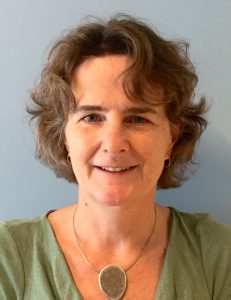 Dr. van Schaik is Associate Professor of Pediatrics at the University of California San Francisco (UCSF) where she serves as Education Director of the UCSF Kanbar Center for Simulation, Fellowship Director for Pediatric Critical Care Medicine and Director of Faculty Development for the new UCSF School of Medicine Bridges Curriculum. She completed her medical school training at the University of Amsterdam, the Netherlands, followed by a PhD from the University of Utrecht, the Netherlands and residency training in pediatrics at the New England Medical Center/Tufts University in Boston, MA. She came to UCSF for pediatric critical care fellowship and has been on faculty since 2006. Her academic career focus is on health professions education with a research focus on self-directed learning as well as interprofessional teamwork, communication and feedback. She has completed a medical education research fellowship at UCSF and was part of the Josiah Macy Faculty Scholars Program from 2012 to 2014.
Dr. van Schaik is Associate Professor of Pediatrics at the University of California San Francisco (UCSF) where she serves as Education Director of the UCSF Kanbar Center for Simulation, Fellowship Director for Pediatric Critical Care Medicine and Director of Faculty Development for the new UCSF School of Medicine Bridges Curriculum. She completed her medical school training at the University of Amsterdam, the Netherlands, followed by a PhD from the University of Utrecht, the Netherlands and residency training in pediatrics at the New England Medical Center/Tufts University in Boston, MA. She came to UCSF for pediatric critical care fellowship and has been on faculty since 2006. Her academic career focus is on health professions education with a research focus on self-directed learning as well as interprofessional teamwork, communication and feedback. She has completed a medical education research fellowship at UCSF and was part of the Josiah Macy Faculty Scholars Program from 2012 to 2014.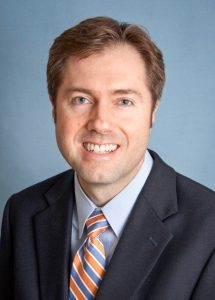 Dr. Douglas Larsen is a medical education researcher, teacher, and practicing pediatric neurologist. His research interests include self-regulated and socially-regulated learning as well as the role of memory in education. His work focuses on developing theory-based, practical interventions that improve day-to-day educational practice. He has developed collaborations across various disciplines and institutions. Dr. Larsen completed his medical degree at the University of Utah School of Medicine in 2003. He pursued residency training in pediatrics at Cincinnati Children’s Hospital, and then trained in pediatric neurology at St. Louis Children’s Hospital and Washington University. He has been on the faculty at the Washington University in St. Louis School of Medicine since 2008. He received a master’s degree in education from the University of Cincinnati in 2010. Dr. Larsen was a Macy Faculty Scholar of the Josiah Macy Jr. Foundation from 2014-2016. He is the Director of Medical Student Education for the Division of Pediatric Neurology.
Dr. Douglas Larsen is a medical education researcher, teacher, and practicing pediatric neurologist. His research interests include self-regulated and socially-regulated learning as well as the role of memory in education. His work focuses on developing theory-based, practical interventions that improve day-to-day educational practice. He has developed collaborations across various disciplines and institutions. Dr. Larsen completed his medical degree at the University of Utah School of Medicine in 2003. He pursued residency training in pediatrics at Cincinnati Children’s Hospital, and then trained in pediatric neurology at St. Louis Children’s Hospital and Washington University. He has been on the faculty at the Washington University in St. Louis School of Medicine since 2008. He received a master’s degree in education from the University of Cincinnati in 2010. Dr. Larsen was a Macy Faculty Scholar of the Josiah Macy Jr. Foundation from 2014-2016. He is the Director of Medical Student Education for the Division of Pediatric Neurology.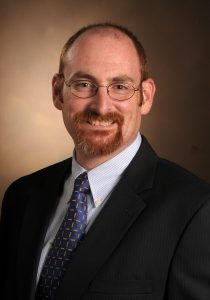 Dr. Cutrer received his M.D. with high distinction from the University of Kentucky College of Medicine and completed his Pediatrics residency, chief residency and Pediatric Critical Care fellowship at Baylor College of Medicine and Texas Children’s Hospital. He also has a Master of Education from the University of Cincinnati. Dr. Cutrer is an Assistant Professor of Pediatrics in the Division of Pediatric Critical Care Medicine at Vanderbilt University School of Medicine (VUSM). He is actively involved in medical student education and curriculum development. Dr. Cutrer is very interested in understanding how students learn in the workplace and how to help them more effectively. He has published and presented widely on these topics. He co-leads the AMA’s Accelerating Change in Medical Education initiative Master Adaptive Learner Working Group and is a member of the Vanderbilt core team participating in the AAMC pilot project Core Entrustable Professional Activities for Entering Residency (CEPAER).
Dr. Cutrer received his M.D. with high distinction from the University of Kentucky College of Medicine and completed his Pediatrics residency, chief residency and Pediatric Critical Care fellowship at Baylor College of Medicine and Texas Children’s Hospital. He also has a Master of Education from the University of Cincinnati. Dr. Cutrer is an Assistant Professor of Pediatrics in the Division of Pediatric Critical Care Medicine at Vanderbilt University School of Medicine (VUSM). He is actively involved in medical student education and curriculum development. Dr. Cutrer is very interested in understanding how students learn in the workplace and how to help them more effectively. He has published and presented widely on these topics. He co-leads the AMA’s Accelerating Change in Medical Education initiative Master Adaptive Learner Working Group and is a member of the Vanderbilt core team participating in the AAMC pilot project Core Entrustable Professional Activities for Entering Residency (CEPAER).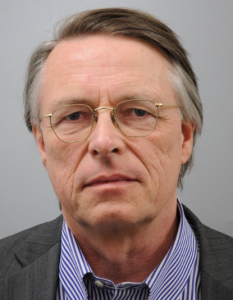 Olle ten Cate attended medical school at the University of Amsterdam, the Netherlands and has spent his professional life from 1980 serving medical education. In 1986 he completed a PhD dissertation on peer teaching in medical education. Until 1999 he was closely involved with all of the University of Amsterdam’s major preclinical and clinical curriculum reforms, education research, program evaluation and educational development. In 1999 he was appointed full professor of Medical Education at Utrecht University, the Netherlands, and program director of undergraduate medical education at University Medical Center Utrecht. Since 2005 he leads the Center for Research and Development of Education at UMCU. His research interests include curriculum development, peer teaching, competency-based medical education, and many other topics. From 2006 until 2012 he served as president of the Netherlands Association for Medical Education. In 2012 was appointed adjunct professor of medicine at the University of California, San Francisco, next to his work in Utrecht. He has published extensively in the medical education literature (250+) and supervised and supervises many doctoral students (25+) in medical education research.
Olle ten Cate attended medical school at the University of Amsterdam, the Netherlands and has spent his professional life from 1980 serving medical education. In 1986 he completed a PhD dissertation on peer teaching in medical education. Until 1999 he was closely involved with all of the University of Amsterdam’s major preclinical and clinical curriculum reforms, education research, program evaluation and educational development. In 1999 he was appointed full professor of Medical Education at Utrecht University, the Netherlands, and program director of undergraduate medical education at University Medical Center Utrecht. Since 2005 he leads the Center for Research and Development of Education at UMCU. His research interests include curriculum development, peer teaching, competency-based medical education, and many other topics. From 2006 until 2012 he served as president of the Netherlands Association for Medical Education. In 2012 was appointed adjunct professor of medicine at the University of California, San Francisco, next to his work in Utrecht. He has published extensively in the medical education literature (250+) and supervised and supervises many doctoral students (25+) in medical education research.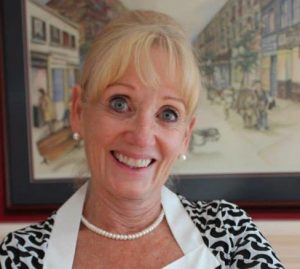 Gayle Gliva-McConvey has been the Director of Professional Skills teaching and Assessment at Eastern Virginia Medical School (EVMS) since its inception in 1993. For over 43 years she has developed and integrated the Standardized Patient (SP) methodology in clinical skills assessment and training. In 1973, as the first non-physician SP Educator, she managed the first Standardized Patient Program at McMaster University Faculty of Health Sciences in Hamilton, Ontario Canada.
Gayle Gliva-McConvey has been the Director of Professional Skills teaching and Assessment at Eastern Virginia Medical School (EVMS) since its inception in 1993. For over 43 years she has developed and integrated the Standardized Patient (SP) methodology in clinical skills assessment and training. In 1973, as the first non-physician SP Educator, she managed the first Standardized Patient Program at McMaster University Faculty of Health Sciences in Hamilton, Ontario Canada. Carrie Bohnert, MPA, serves as director of the Standardized Patient Program at the University of Louisville. For U of L, Ms. Bohnert has implemented rigorous quality control measures, expanded use of the program, presented at international conferences, and published in Academic Medicine.
Carrie Bohnert, MPA, serves as director of the Standardized Patient Program at the University of Louisville. For U of L, Ms. Bohnert has implemented rigorous quality control measures, expanded use of the program, presented at international conferences, and published in Academic Medicine.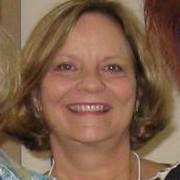 Dr. Lane is the Senior Director of Clinical Skills Assessment & Education at Virginia Tech Carilion School of Medicine (VTCSOM) with over 20 years of experience in SP methodology. She earned her doctorate in Leadership in Higher Education at East Carolina University (ECU). Dr. Lane was a member of the task force on standardized patients and case development with the National Board of Medical Examiners, collaborating on research and development of the USMLE Step 2 C S. She is past Chair of the Standards of Practice Committee in the Association of Standardized Patient Educators (ASPE). In 2007 she received the ASPE coveted Outstanding Educator Award.
Dr. Lane is the Senior Director of Clinical Skills Assessment & Education at Virginia Tech Carilion School of Medicine (VTCSOM) with over 20 years of experience in SP methodology. She earned her doctorate in Leadership in Higher Education at East Carolina University (ECU). Dr. Lane was a member of the task force on standardized patients and case development with the National Board of Medical Examiners, collaborating on research and development of the USMLE Step 2 C S. She is past Chair of the Standards of Practice Committee in the Association of Standardized Patient Educators (ASPE). In 2007 she received the ASPE coveted Outstanding Educator Award.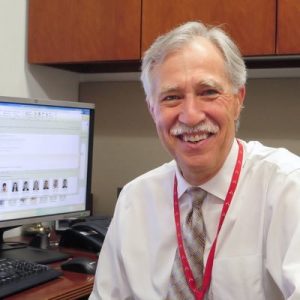 For the past 32 years I have had the privilege of working in multiple areas of pediatrics and pediatric nephrology. After my clinical and research training at the University of Minnesota, I began in the tenure track in basic science at the Ohio State University (OSU) and Nationwide Children’s Hospital (NCH) in 1984. In 1990 I was appointed and still serve as Program Director of the NCH General Pediatric Residency Program and in 2003 I started and still direct the NCH Pediatric Nephrology Fellowship Program. I served as Director of the OSU College of Medicine (COM) Center for Education and Scholarship from 2009-2012 and now serve as Assistant Director of Faculty Development in the COM (since 2010). I have led the OSU Professionalism Council Educators Working Group since 2009 and am responsible for the evaluation and ongoing improvement of professionalism education as Director of Competence for Professionalism in the COM. We have recently developed the OSU Professionalism Climate Questionnaire to define the environment so critical for developing professionalism skills in medical education learners and promoting resilience in physicians.
For the past 32 years I have had the privilege of working in multiple areas of pediatrics and pediatric nephrology. After my clinical and research training at the University of Minnesota, I began in the tenure track in basic science at the Ohio State University (OSU) and Nationwide Children’s Hospital (NCH) in 1984. In 1990 I was appointed and still serve as Program Director of the NCH General Pediatric Residency Program and in 2003 I started and still direct the NCH Pediatric Nephrology Fellowship Program. I served as Director of the OSU College of Medicine (COM) Center for Education and Scholarship from 2009-2012 and now serve as Assistant Director of Faculty Development in the COM (since 2010). I have led the OSU Professionalism Council Educators Working Group since 2009 and am responsible for the evaluation and ongoing improvement of professionalism education as Director of Competence for Professionalism in the COM. We have recently developed the OSU Professionalism Climate Questionnaire to define the environment so critical for developing professionalism skills in medical education learners and promoting resilience in physicians.